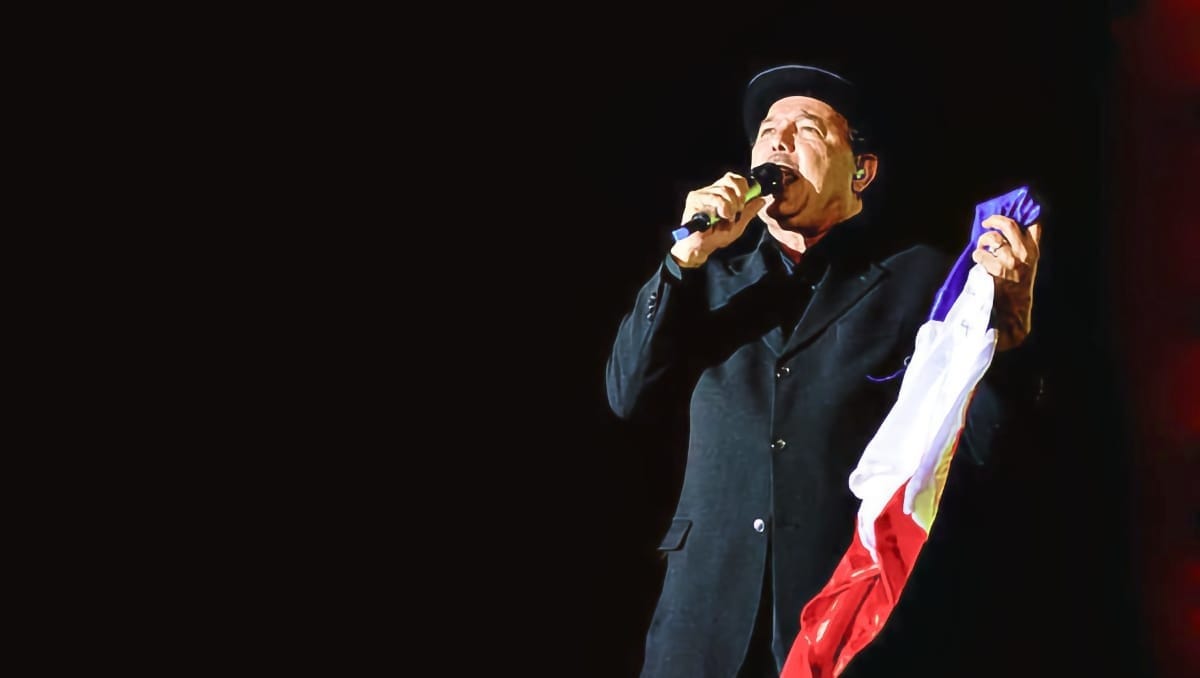Dating back to the Cold War era, littered throughout Latin and Central American history, state-sponsored forced disappearances—considered crimes against humanity—number in the hundreds of thousands. This has been a cruel tactic used by governments and narcos alike to silence those with less power who dare even hint at dissent or happen to be within close range of someone who does.
More than likely, there is not one country within this geographic location that has not been assailed by this horrific phenomenon. Yet, it would be unfair not to mention some of the most infamous examples in history:
- Guatemala: 1960s (Operación Limpieza)
- Chile: 1970s (under General Augusto Pinochet)
- Argentina: 1970s (under the military junta)
- Mexico: 2000s to present day (in the war between government and narcos)
Around 1972, while living under similar circumstances during the Torrijos dictatorship in Panama, a then-budding musician and singer, Rubén Blades, and his family were sent into exile after his father (ex-secret police) ran into problems with the head of military intelligence, Manuel Noriega (yes, the same Noriega who rose to power just a few years later).
It is under the scope of this longstanding historical burden that we find Rubén Blades y Seis del Solar (Six from the Patio) releasing Buscando America (Looking for America) on April 3, 1984. This was Blades's first album with Seis del Solar and his first after leaving the salsa supergroup the Fania All Stars.
This album opens with a surprising doo-wop intro, cradles us with a percussive foundation throughout, and still manages to squeeze in Blades's iconic storytelling in various genres, such as salsa, rock, and Latin jazz. It even gifted us "Desapariciones," a reggae-influenced classic that took on a life of its own. I'd like to center the rest of this article on this timeless hit.
El Poeta de la Salsa (the Salsa Poet), as Rubén Blades is also known, is a well-deserved nickname. "Desapariciones (Disappearances) is just one of a deep and unabashedly Latin American catalog of songs that details the ordinary and the spectacular. It is the third song on this Grammy-nominated album, focusing on various Latin American characters' "mysterious" disappearances.
Strangely enough, I hadn't heard the original version until I decided to write about it, but I'd heard plenty of covers from top artists in the Latin alternative scene. Before this, my knowledge of Blades's contribution to music was limited to a few of his glorious moments: his extensive involvement with Fania, penning the undying classic "Pedro Navaja" (which was inspired by "Mack the Knife"), and writing one of Héctor Lavoe's biggest hits, "El Cantante." He had already cemented an envious legacy by accomplishing only one of these.
The first cover version of "Desapariciones" I heard was by the Argentine ska/rock band Los Fabulosos Cadillacs. They included it in their 1992 album El León but decided to speed up the tempo with their more Latin-leaning interpretation. Honestly, it wasn't one of the album's high points, but it eventually grew on me.
I heard the song again in 1999 on Maná's (one of Mexico's top Latin pop/rock groups) MTV Unplugged album. They never officially released this version on one of their studio albums. Still, it's a wonderful homage to "those dedicated to trying to have a more just world, and they've been followed, they've been tortured, they've been disappeared, and some have even been killed" (translated from Spanish), as Fher, the lead singer, so eloquently described it. They kept their version pretty faithful to the 1984 original.
They say the third time's a charm. With the third cover of "Desapariciones," heard around 2001, this song was solidified as an enduring classic for me—sadly based on a terrifying and unwelcome reality in recent Latin American history. This last one was released by the French band Sergent Garcia on their 2001 album Sin Fronteras. They changed the title to "Los Desaparecidos" (The Disappeared) and dug deep into the roots reggae style to create their almost eight-minute version.
When I recently had the pleasure of listening to Rubén Blades's original, the genesis of all the versions I had grown up enjoying, everything fell into place. It opens with a very somber organ and an insistent slapback snare, conjuring up the sound of distant gunshots. Then, a wailing voice, almost like a parent suffering in silence, enters, introducing Blades's mundane yet poignant vignettes of everyday Latin American citizens who have vanished into thin air.
We're introduced to Ernesto, a watchman at a car dealership; Altagracia, last seen going from work to school; Agustín, a pre-med student; and Clara Quiñones, who keeps to herself yet was taken in for questioning. Blades is clever in his wording. He introduces each of these characters through their loved ones: a wife, a sibling, another parent, and a child. All were left seeking answers that would help clarify the whereabouts of the ones they most love.
For some, there are frail justifications given for why the disappearance might've occurred. Clara is taken as a witness for a possible situation involving her child, Agustín is likely detained because he is stubborn when he opines. Yet, no reasoning has been given for the others. This is what is so chilling: you could be forcibly taken at random, never to be found again. A reason doesn't have to exist because the overall effect of the void is to submit the general population into compliance.
This is all sealed with the follow-up strategy: shotguns, revolvers, accelerating cars, screams, boots on the street, knocks on doors, complaints, exclamations. The ghostly ending is a series of rhetorical questions and a haunting set of attempted responses:
Where do the disappeared go?
(Search in the water and the bushes)
Why is it that they disappear?
(Because we're not all the same)
When does the disappeared return?
(Every time that our thoughts bring them)
How do you speak to the disappeared?
(With our emotions pressing inside)
When you take the time to read the lyrics (the translation into English also helps) and not just be swayed by the island groove, the stark reality he's painting sets in. The fact that three well-known music groups from Latin and Central America and one from France, which has a heavy focus on Latin rhythms, chose to shine a light on this issue also sends a deeper message. This is not just a Panamanian or Argentine phenomenon; history clearly shows that Latin and Central America are united in experiencing these painful atrocities committed by those in power. Still, there is also a shared persistence in continuing to look for the answers to these difficult questions and never giving up hope.

My winding journey back to the original version of "Desapariciones" is loosely analogous to how I became deeply connected to my Latin American roots. Growing up in the United States as a first-generation Latino (specifically, Colombian), all I learned about Latin America was taken in through the lens of my U.S. upbringing. As my curiosity guided me closer to the stories and intertwined my life with the lives of individuals from these locations, I began to unveil a more genuine perspective. The ultimate discovery is that there is a long history of immeasurable beauty and devastating pain, sustained by a spirit of endurance that prevails throughout it all.
With "Desapariciones," Rubén Blades was able to unite the voices of all Latin and Central Americans and extend their stories across time and any one location. Perhaps one day, there will be a just response to all of the questions posed by those still searching in vain for their disappeared loved ones.
For more from Rubén Blades, check out his website, listen to his music, and follow him on YouTube, Facebook, and Instagram. Blades is also being honored presently at the Lincoln Center.
If you enjoyed this, be sure to check out:









Comments